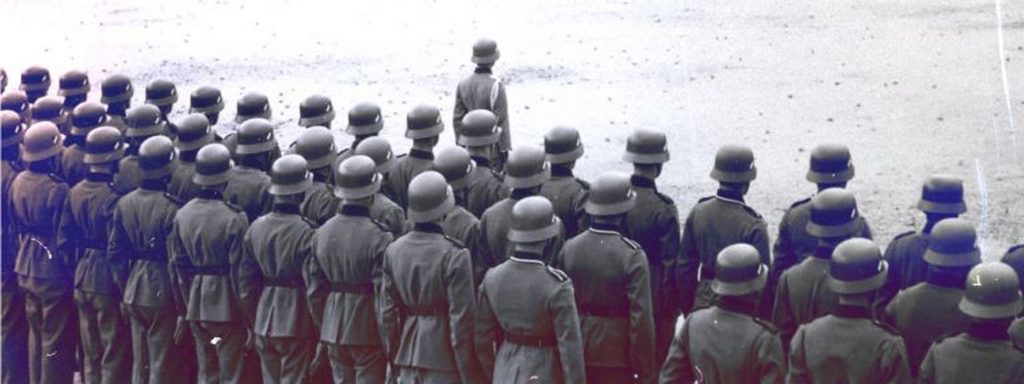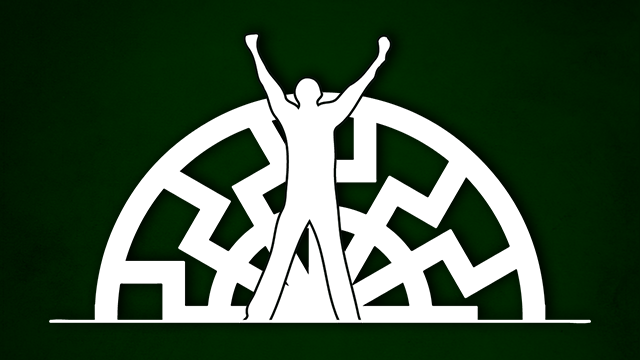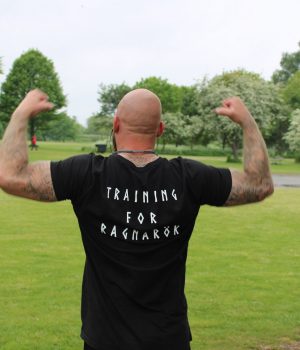IDEOLOGY. Jacob Vullum outlines an important tool for self-improvement to help grow as a person and as an activist: military discipline.
Discipline is the practice of self-control and having the belief in yourself to know you can achieve your goals, even when they seem impossible.
After five years as a member of the Resistance Movement – and more recently as a Nest Chief and now the Danish National Chief – I have learned that many men and women who apply to join this organisation have realised some vital truths about politics and the world in general, such as acknowledging the necessity of a National Socialist revolution; however, they are still damaged by our sick, dying society and possess low self-belief, passivity and a lack of discipline.
Some people think discipline leads to rigidity or inflexibility, but this is not necessarily the case. Discipline, when suited to the task, results in order and follows a set of rules or a plan for a predetermined outcome. Disciplined people are willing to make sacrifices to achieve their goals, because they understand the importance of their struggle: both for the people’s future in a free Nordic Nation, and for their own personal benefit.
Discipline equals freedom
Discipline may seem like a burden, but in reality it can free people from the control of their desires. Discipline provides the opportunity to train for tasks relevant to both the struggle and to yourself, and gain the intended results.
My own history is full of bumps in the road. I have been down many dead ends and have been led astray by a great deal of escapism in the past, but I acquired the self-discipline to change my behaviour.
Self-discipline is the ability to control our thoughts, emotions and behaviour. It can be learned with sufficient time and dedication, if you are determined to do so – but it requires practice to master. Nothing worth doing ever came easy, and there is a reason why so many people struggle with self-discipline. When done right, the benefits are immense – below are some examples.
- Self-discipline increases the likelihood of rational decision-making – you avoid acting rashly and making the wrong decision.
- Self-discipline helps you fulfil the commitments and promises you make to yourself and your comrades.
- Self-discipline breaks bad or unhealthy habits.
- Self-discipline helps you avoid procrastination and increases productivity in your private life or in the Resistance Movement.
- Self-discipline improves your ability to focus and reliably commit your time to the struggle, family, work or study.
Order and obedience
Military discipline is defined as order and obedience among military personnel. It is related to soldiers’ rapid and willing responsiveness to demands, and the understanding of the need for compliance with directives.
The term “military discipline” can put people off, as there is an aspect of rigidity and intensity associated with it. But by adopting the mentality of those who use military discipline and adapting it to your own lifestyle, you can reap the rewards, while still enjoying flexibility.
Military discipline can be applied to many aspects of life. It can help you become more organised, keep track of your goals and achieve success. Military life is not for everyone, but there are some things you can learn from this lifestyle that can bring you closer to your goals. You learn to manage your time and stay focused on the task at hand. You will also have a sense of responsibility and an understanding of being disciplined and following orders.
For me personally, my previous missteps and my escapism were fuelled by a disgust of this sick society and its incomprehensible workings vis-à-vis priorities, power, race and welfare. But with military discipline I corrected my course and acquired the clear vision and morality that drive me today, enabling me to proudly fight against what drove me off course to begin with.
You can introduce military discipline into everyday life by dividing the path towards it into steps:
Identify where your shortcomings are and outline the goals you want to achieve: For example, if you are new to the Resistance Movement and do not yet have the personality or physique of an activist, write these things down and outline what success would look like for you, such as sticking to a diet plan, exercising and learning to think like a courageous activist. You may also want to reflect on other aspects of your life, such as honour, physical fitness, punctuality, honesty, bravery and etiquette.
Visualise your goal: Having goals and articulating your shortcomings is just the beginning – what are your objective key results? Where do you want to be in X number of months? For example, maybe you want to run 2.6km in 12 minutes, or have the courage to participate in public activism, or maybe you want to be a Group Chief. What does the perfect activist look like? What qualities does a good Chief have? Visualise them.
Start small: Now you know where you’re going and how things will look when you get there, start striving towards your goal. If you take on too much at once, you’ll become discouraged, so start building up your military discipline in small steps. If you can’t run the distance in the given time, go on shorter runs until you master that distance. If you lack the courage to be an activist right now, put your boldness to the test in other areas. If you are not yet a Group or Nest Chief, you can start practising thinking like a Chief.
Get a mentor: It always helps to have someone to help you who has been there and done that. It can be your Nest Chief, your Group Chief or an experienced activist by your side. Not only can they inspire you if you feel discouraged, but they can also help pick you up if you fail – which takes us to Step 5.
Practise, make mistakes, start over: Be prepared to fail – failure is inevitable and is a natural part of progress and building military discipline. You have not established discipline if you are not able to begin and continue in the face of adversity.
Treat yourself: As previously mentioned, military discipline in everyday life should not consume everything you do, nor should it limit you excessively. Be sure to treat yourself and give yourself a break, as you will likely come back stronger and more willing than ever to achieve your goals.
It is important to adopt military discipline in certain areas of your life to achieve success – especially if you are someone who struggles with maintaining commitments – and discipline for an activist in the Resistance Movement is absolutely fundamental. Military discipline is not just about following orders or having a training programme. It’s about doing the right thing for the right reason, at the right time and with the right attitude. Military discipline teaches you how to set goals, prioritise tasks and take responsibility for your actions.




























